Now that you know what a pitch bible is for (one of the visual tools used in a pitch meeting), let’s look into the essential elements inside a pitch bible:
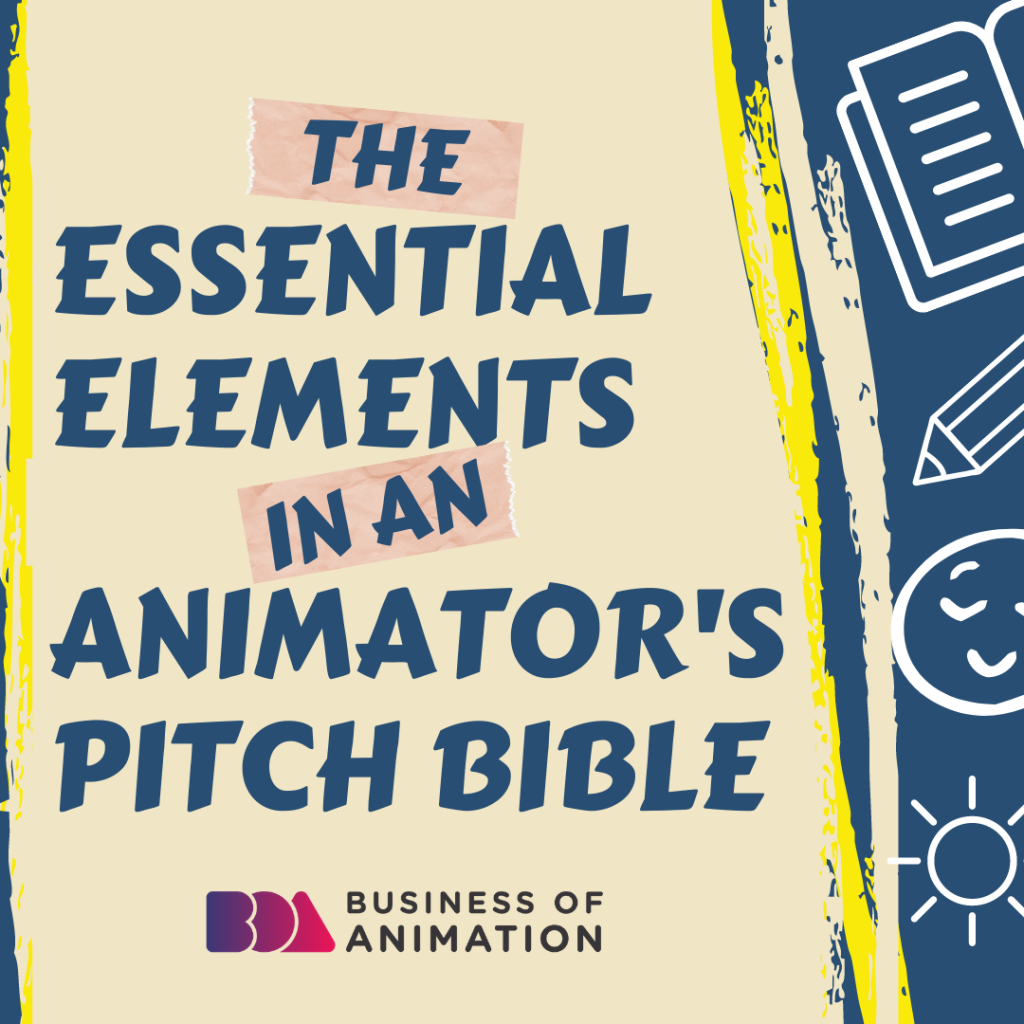
1. Logline
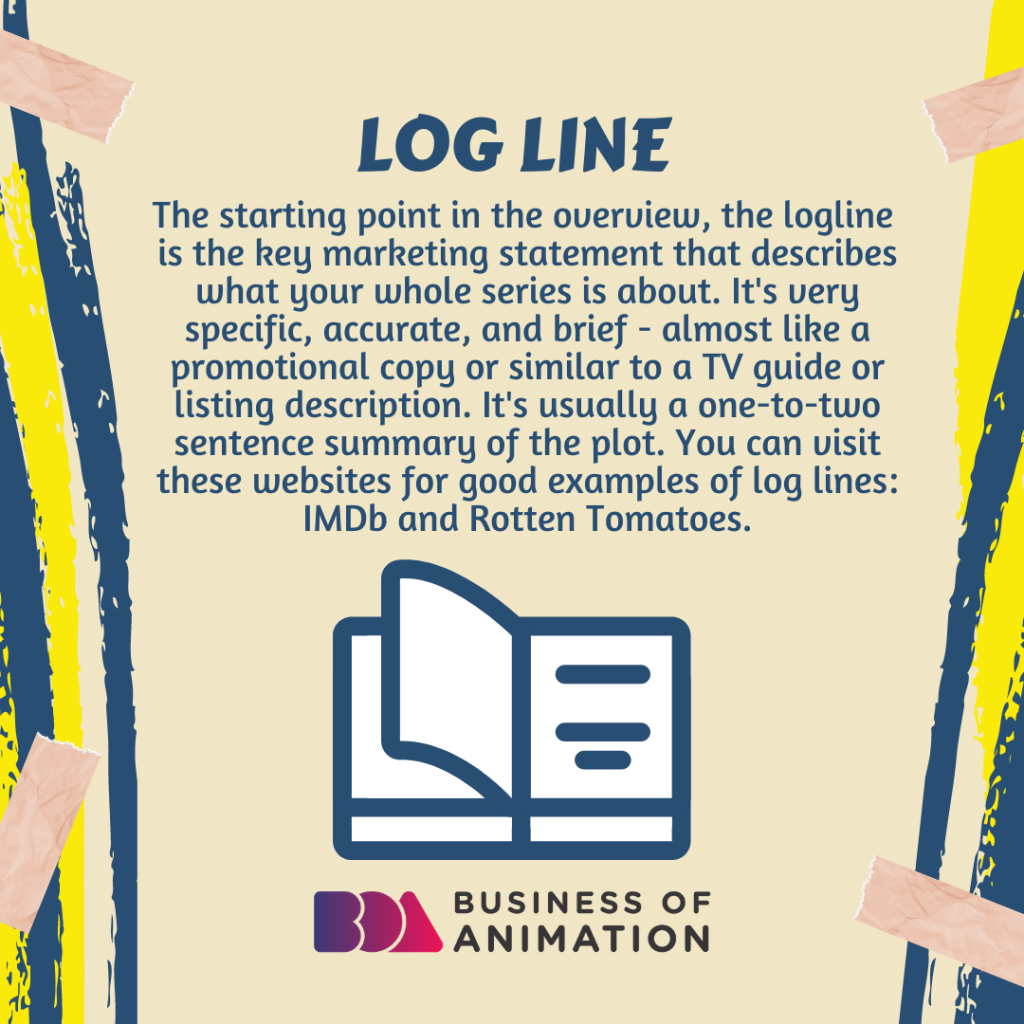
The starting point in the overview, the logline is the key marketing statement that describes what your whole series is about. It's very specific, accurate, and brief - almost like a promotional copy or similar to a TV guide or listing description. It's usually a one-to-two sentence summary of the plot. You can visit these websites for good examples of log lines: IMDb and Rotten Tomatoes.
2. Executive Overview
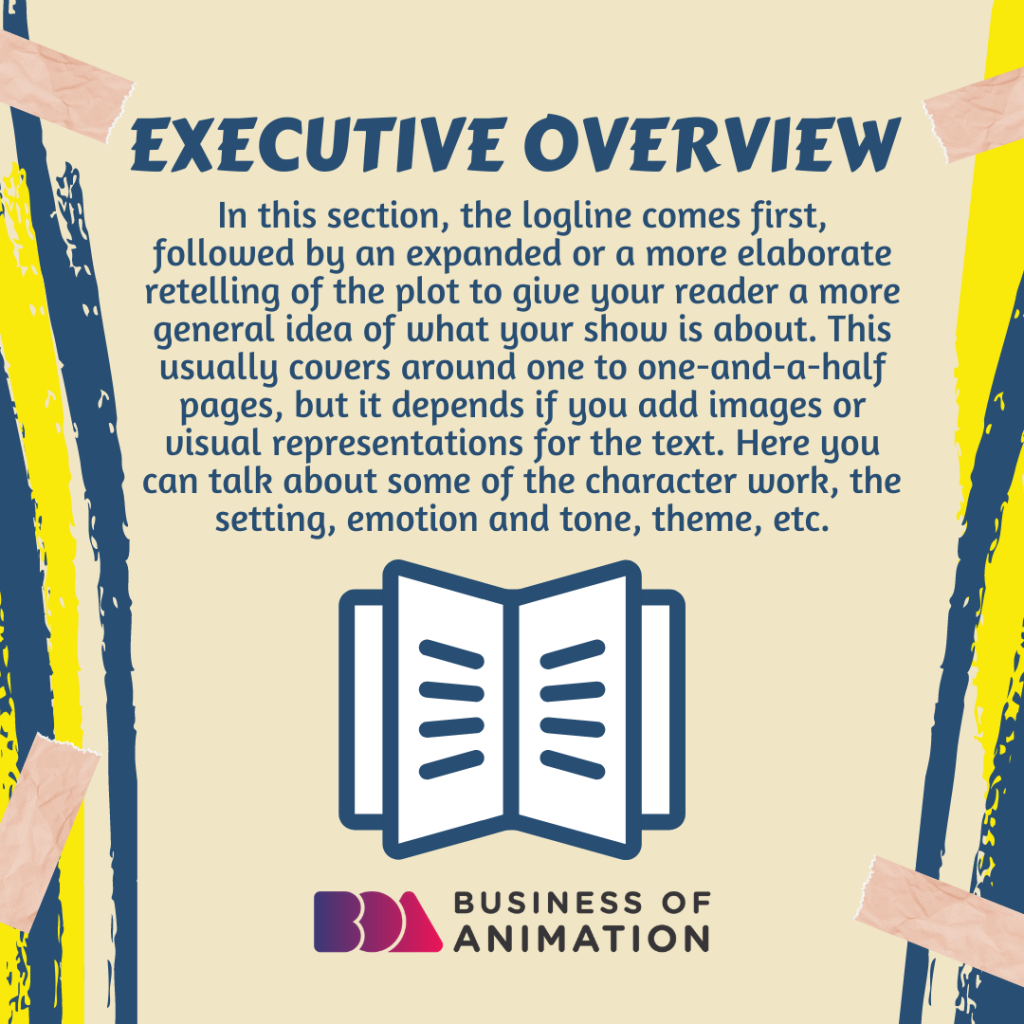
In this section, the logline comes first, followed by an expanded or a more elaborate retelling of the plot to give your reader a more general idea of what your show is about. This usually covers around one to one-and-a-half pages, but it depends if you add images or visual representations for the text. Here you can talk about some of the character work, the setting, emotion and tone, theme, etc.
3. Characters
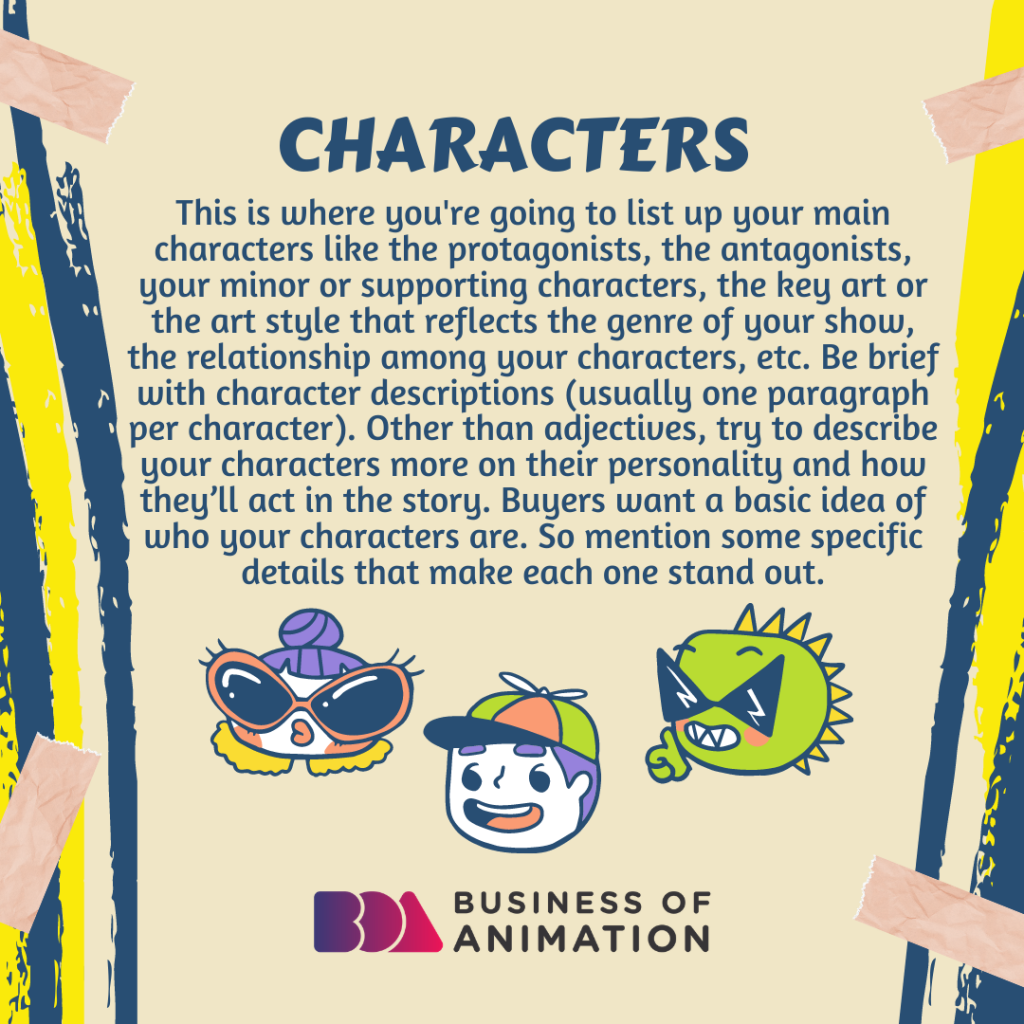
This is where you're going to list up your main characters like the protagonists, the antagonists, your minor or supporting characters, the key art or the art style that reflects the genre of your show, the relationship among your characters, etc. Be brief with character descriptions (usually one paragraph per character). Other than adjectives, try to describe your characters more on their personality and how they'll act in the story. Buyers want a basic idea of who your characters are. So mention some specific details that make each one stand out.
4. Setting
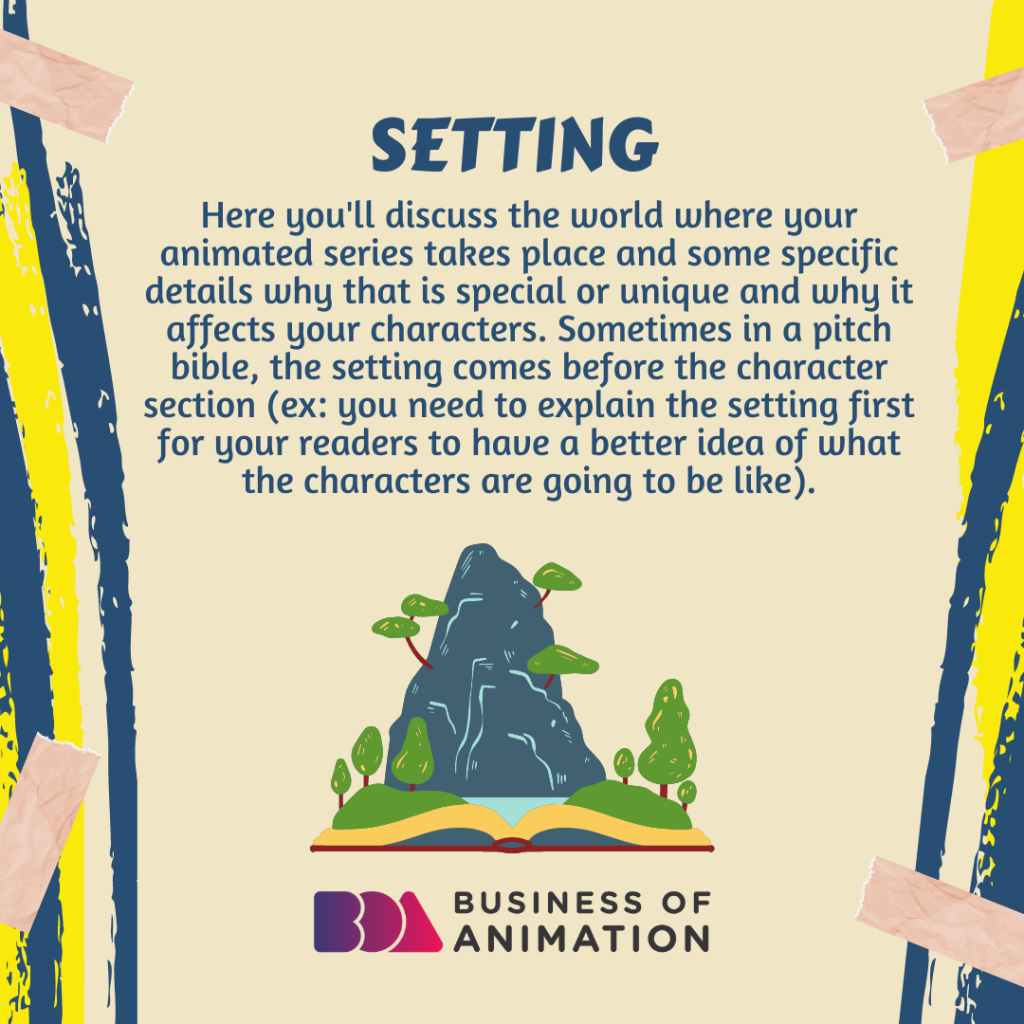
Here you'll discuss the world where your animated series takes place and some specific details why that is special or unique and why it affects your characters. Sometimes in a pitch bible, the setting comes before the character section (ex: you need to explain the setting first for your readers to have a better idea of what the characters are going to be like).
5. Episode Synopses/Story Springboards
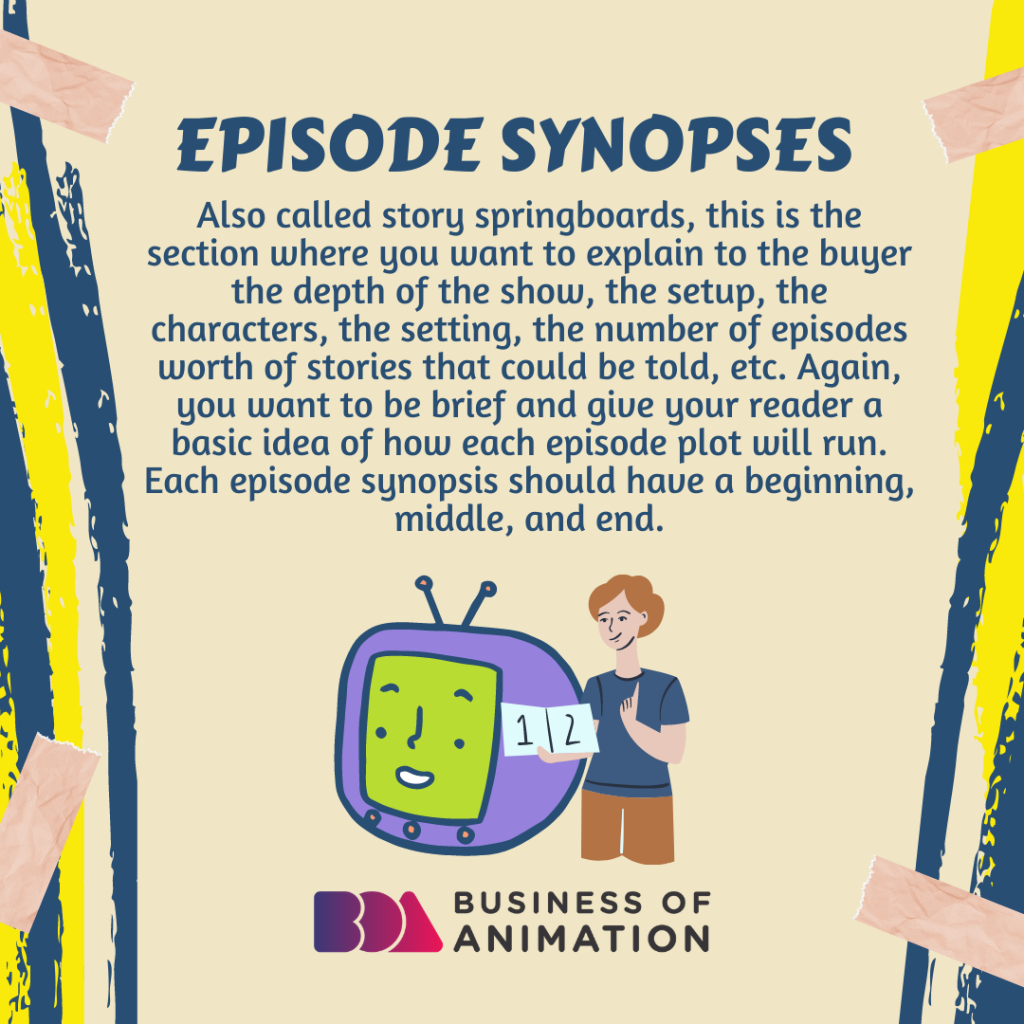
Also called story springboards, this is the section where you want to explain to the buyer the depth of the show, the setup, the characters, the setting, the number of episodes worth of stories that could be told, etc. Again, you want to be brief and give your reader a basic idea of how each episode plot will run. Each episode synopsis should have a beginning, middle, and end.
6. Contact Information
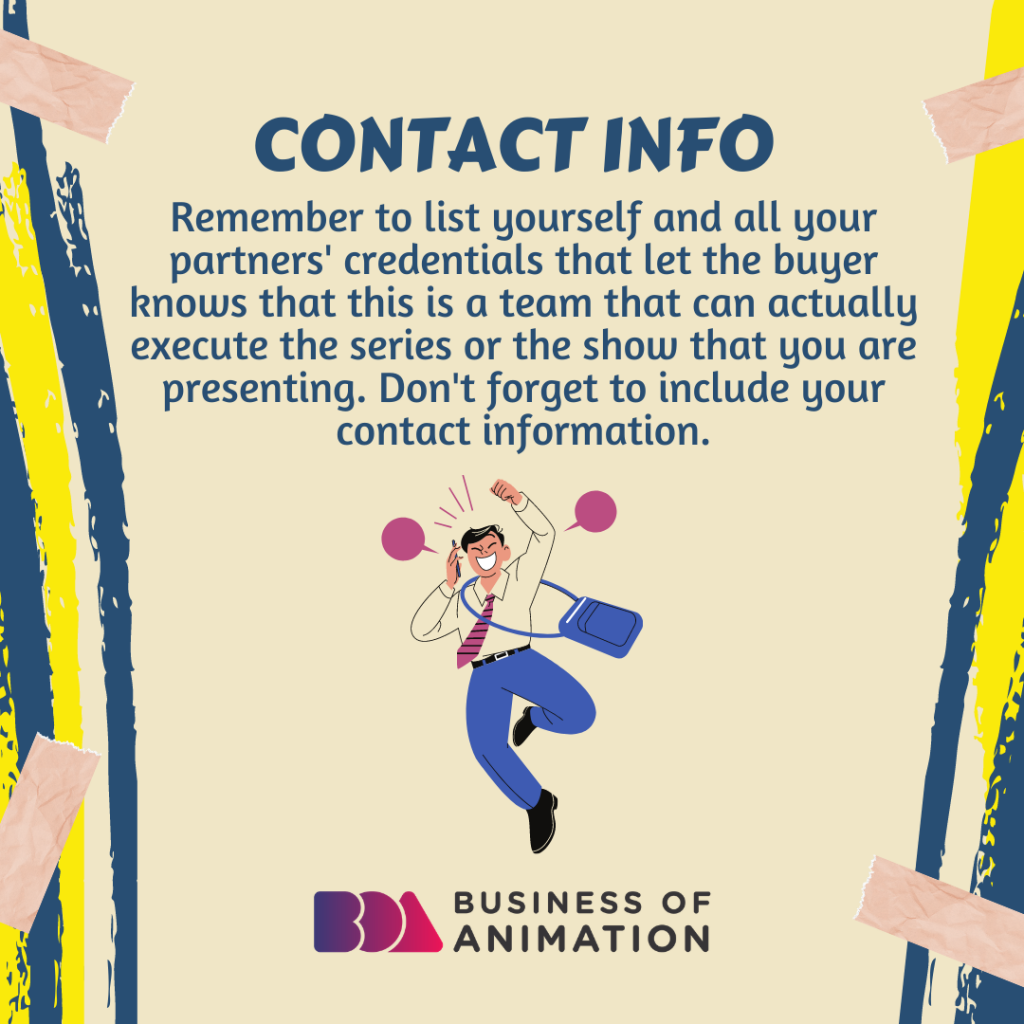
Remember to list yourself and all your partners' credentials that let the buyer knows that this is a team that can actually execute the series or the show that you are presenting. Don't forget to include your contact information.
7. Optional Elements/Sections
If necessary, here are optional elements or sections that you can include in your pitch bible:
- Character model sheet(s) (at least 6 poses and facial expressions)
- Concept art for props, clothing, and other important elements in the story
- Additional environment concept art of buildings, foliage, etc.,
- Map of the terrain or floorplans of the building
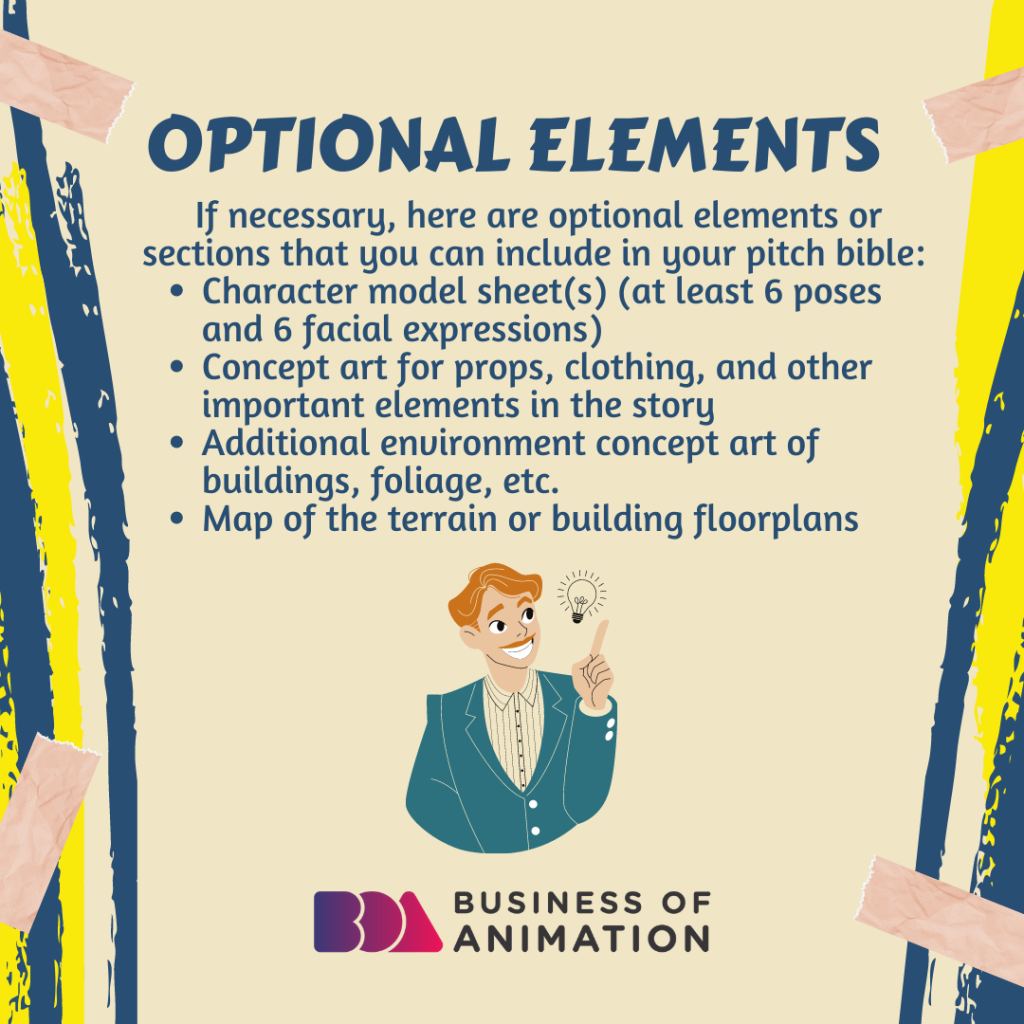
Important Note

There's no absolute format to follow when it comes to creating a pitch bible. You can get creative with it however you want. But remember to keep these essential elements in mind. You can browse through Shore Scripts' website to see great examples of pitch bibles
References: Eric Calderon (Surviving Animation, 2018), Heather Kenyon (CTN animation eXpo, 2010), Jan Nagel (AWN, 2004), Lowell Boston (BGSU, 2017), Cartoon Pitch Pro, Johnny Chew (LifeWire, 2020)
Check out Business of Animation's blog for more in-depth tips on how to grow your animation business!



